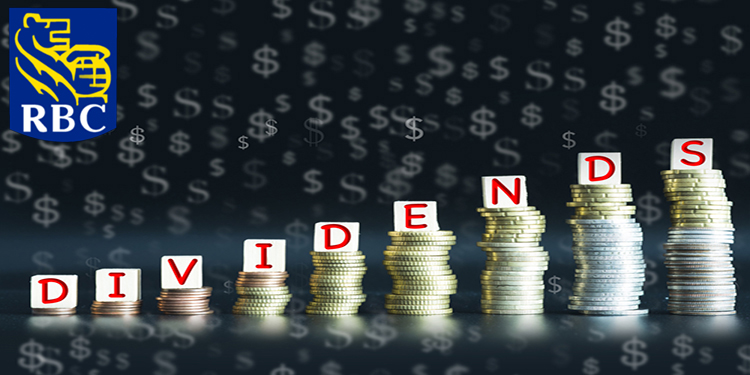The coronavirus pandemic hasn’t gone away; there’s a growing realization that the virus will be with us, at least, for some time to come. And that makes dividend stocks, the classic defensive play, look better.
Invest with Confidence:
- Follow TipRanks' Top Wall Street Analysts to uncover their success rate and average return.
- Join thousands of data-driven investors – Build your Smart Portfolio for personalized insights.
Return-minded investors can find a degree of safety in high-yielding equities, as the dividend will insulate the portfolio’s income stream. And even though dividend stocks tend to return less on share appreciation, there are still plenty out there that are showing high upside potential.
Finding the right dividend stock, however, is the real trick.
Top analysts from investment bank RBC have been focusing their gaze on some likely candidates for income investors’ interest. Using the TipRanks database, we’ve pulled the details on two of RBC’s dividend stock picks. These are stocks that the Street is leery of – they feature Hold ratings – but RBC sees a better promise from each of them.
Comerica, Inc. (CMA)
We’ll start in the banking sector. RBC’s 5-star analyst Jon Arfstrom likes Comerica, the holding company behind Comerica Bank – and a number of recognizable landmarks, including the Detroit Tigers’ Comerica Park. The company saw $3.82 billion in revenues last year, netting $1.2 billion income.
So, CMA had a sound position entering 2020. Even so, the first half was hard on the company. Business declined sharply at consumer banking locations, and the first quarter saw EPS shift from $1.85 profit to a 46-cent loss. The bank began to recover in Q2 when state and local authorities began lifting restrictions. Q2 earnings were positive, at $113 million, or 80 cents per share.
The positive Q2 earnings vindicate CMA’s decision in March to raise the quarterly dividend from 67 cents to 68 cents per share. The current payment annualizes to $2.72 and gives a yield of 7.4%. This compares favorably to the average yield among peer companies in the financial sector, of 2.6%. And even after the company’s share depreciation of 1H20, the payout ratio is only 12%, indicating that this dividend is safe at current income levels
Arfstrom’s review of the stock points out the generally conservative stance of company management toward combatting the coronavirus economic downturn. Common sense business fundamentals have served Comerica well.
“[We] believe Comerica will be capable of generating solid returns… a strong capital position and attractive commercial lending franchise positions the company well… we are encouraged by management’s aggressive upfront actions including the significant reserve build in 1H20. We believe that by taking these actions now, the company should be much better prepared to weather any economic storm over the coming quarters,” Artstrom noted.
In line with his outlook, Arfstrom rates CMA a Buy, and gives the stock a $46 price target. This implies a one-year upside potential of 23%. (To watch Arfstrom’s track record, click here)
Overall, CMA has a Hold consensus rating from Wall Street’s analysts, based on 4 Buys, 6 Holds, and 1 Sell. The rating is still feeling the effects of analyst caution, and of recessionary pressures that have not fully abated. The stock is selling for $37.35, and the $41.44 average price target suggests it has room for 11% growth. (See Comerica stock analysis on TipRanks)
Genesis Energy, LP (GEL)
Next on our list, Genesis Energy LP, is a midstream player in the Gulf Coast crude oil and natural gas industry. Midstreamers like Genesis provide the services that move oil and gas from the wellheads to the customers – transportation, processing, storage, and terminalling.
GEL’s earnings have been depressed since 2H19, but 1H20 saw a 67% sequential gain in EPS despite the coronavirus pandemic. Net income in the quarter was $24.9 million, up from $16 million in the year-ago quarter. The company will report Q2 earnings on August 5.
Gaining ground during the downturn was a feather in the company’s cap, but it did not change the fundamental reality of the situation: economic times are not good. In response, Genesis cut back its dividend payment. The move came in Q1, and reduced the payment from 55 to 15 cents per share. While a severe cut, the move has some positive aspects. First, it keeps the income stream for investors. Second, it brought the payment into line with income, making it sustainable. And finally, even at reduced levels, it gives shareholders a yield of 8.85%, strong by any standard.
Covering the stock for RBC is TJ Schultz, rated 5-stars by TipRanks. He points out that Genesis is shoring up liquidity and has a clear path forward with new midstream projects. He lays out the case clearly: “[We] think GEL pays down debt following the recent distribution cut… Large scale, sanctioned projects projected to flow into GEL system look to remain on schedule, and we still expect cash flow growth here through 2022.”
“We think GEL is positioned to weather the current downturn and should be FCF positive for the next several years. As GEL uses FCF to de-lever, we think the valuation multiple can de-risk,” the analyst concluded.
To this end, Schultz rates GEL a Buy, along with a $14 price target. This figure implies an impressive 105% upside potential. (To watch Schultz’s track record, click here)
Overall, GEL’s Hold analyst consensus rating here is based on three recent reviews, split between Buy, Hold, and Sell. The average price target on GEL is $10, which implies a 46% one-year upside from the current trading price of $6.83. (See GEL’s stock analysis on TipRanks)
To find good ideas for dividend stocks trading at attractive valuations, visit TipRanks’ Best Stocks to Buy, a newly launched tool that unites all of TipRanks’ equity insights.











